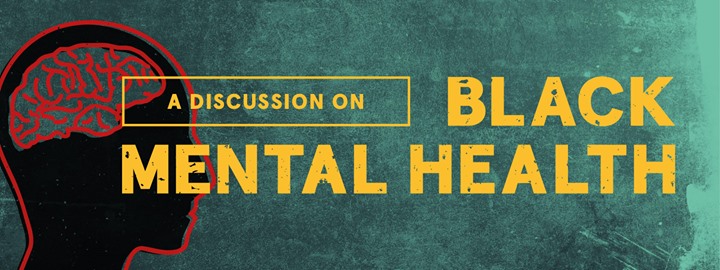The first in our series on welfare and advice at Leeds, this week your Activities Exec, Taiwo, takes a look back at LUU’s Black Mental Health event that was held in Pyramid on the 10th October.
The 10th October was World Mental Health Day. It is a day for awareness of mental health issues and advocacy for the provision of support and breaking down of stigmas associated with mental illness. October is also of course Black History Month. We felt it necessary to hold an event this year focusing on Black Mental Health in the UK.
With mental illness being stigmatised as it is and resources to support sufferers facing financial challenges and an increasing lack of government support, as well as black people being overly-stereotyped as violent, aggressive, and a nuisance by institutions that are meant to serve and protect, the following stats should not come as a surprise. According to research conducted by the charity Mind, African-Caribbean people are five times more likely to be diagnosed with schizophrenia, 44% more likely to be sectioned under the Mental Health Act and 29% more likely to be restrained than their white counterparts.
Black Mental Health is not being given the public forum it needs and this does not allow for black people to inform themselves, for others to be aware of the plight of sufferers, or for us to learn how we can put pressure on government and institutions to make a change.
The event we held invited Alison Lowe, a Leeds Councillor and CEO of Touchstone, a mental health charity that mainly provides BME services. She spoke alongside Rameri Moukam and Jordan Stephen from Pattigift Therapy, which provides African Centre Therapy, and Leona Black, a PHD researcher from the school of Sociology & Social Policy here at Leeds.
The turnout for the event was fantastic, with over 150 students in attendance, filling up the entirety of Pyramid. The discussion allowed for a candid discussion of the causes of mental health illnesses in the black community and proposed remedies, as well as an exploration of the intersecting difficulties Black British people with mental health illnesses face at an institutional level. Considerations were given to the proportionately higher rate of illness being due to trauma from racism in the contemporary and inherited trauma from colonialism and slavery. Proposed remedies ranged from mindfulness and spiritual awareness to counselling – the pros and cons of this and the best ways to approach it without feeling dependent.
The panellists were beyond knowledgeable and experienced, and being able to learn from their contributions and reflect on their experiences was a special gift. Comments on the feedback forms reflected this and many students commended it as the most significant Black History Month event they had attended so far.
The event was chaired by our Education Officer Melissa Owusu (Melz) and a special thanks to her and LUU staff for organising it, as well as our guests for taking the time to share their words of wisdom with us. To those who were in attendance, I hope you were all able to learn from this event as I did.
Taiwo Ogunyinka
(Photo credit: http://leeds.carpediem.cd/events/1179123-a-discussion-on-black-mental-health-black-history-month-at-leeds-university-union/)

